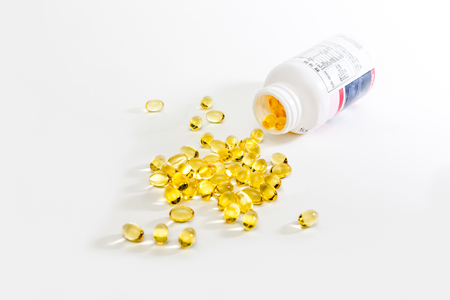Omega-3 Fatty Acids Improve Mood and Limbic Hyperactivity in Youth with Bipolar Depression
Children who have a parent with bipolar disorder are at risk for bipolar illness, but it may first present as depression. Treating these children with antidepressants has the risk of bringing on manic episodes. Researchers are looking for treatment options for youth at risk for bipolar disorder.
Robert McNamara and colleagues found that 12 weeks of omega-3 fatty acids (2,100 mg/day) significantly improved response rates in medication-free youth ages 9–20 years compared to placebo (64% versus 36%). Omega-3 fatty acids but not placebo also reduced the activation of limbic structures in the brain (the left parahippocampal gyrus) in response to emotional stimuli.
Editor’s Note: These data add to the literature on the positive effects of 1–2 grams of omega-3 fatty acids in depression. Given the safety of omega-3 fatty acids and the ambiguous effects of antidepressants in bipolar depression, omega-3 fatty acids would appear to a good alternative, especially since the FDA-approved atypical antipsychotics (quetiapine and lurasidone) are not approved for bipolar depression in people under age 18.


